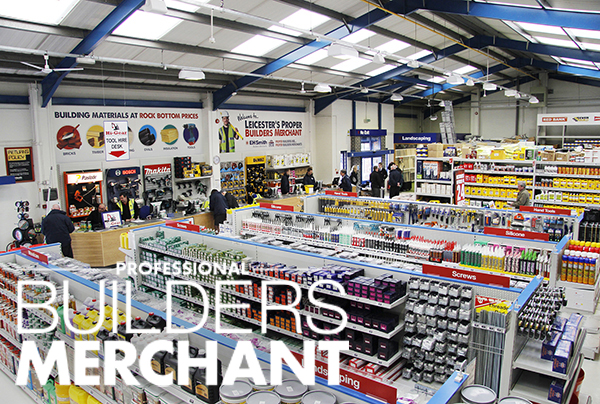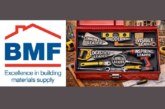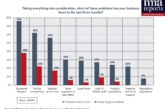
With Deloitte’s Sustainable Consumer Report stating that one in three consumers have stopped purchasing certain brands or products because of ethical or sustainability-related concerns, it’s clear that brand values are under more scrutiny than ever. Lara Coutinho, Supply Chain Sustainability Manager at Quanex group, which includes hardware brand ERA, discusses the importance of working with ethical suppliers and how to identify them.
Merchants should note that providing ethical solutions is not just about the end-product, but rather the entire supply chain. Heightened awareness of societal and environmental issues means that the customer mindset is shifting. And while sustainability has long been a key consideration for many, ethics is rapidly becoming a concern for consumers too.
As a result, they are becoming increasingly aware of how to identify ethical practices, looking beyond the end-product, and into manufacturers’ supply chain partners across different industries, from fashion and automotive to home improvement.
For merchants, working with suppliers that ethically source their materials is no longer a nice to have, it is essential for success. Therefore, it is important for them to evaluate their supply chain and commit to partnering with suppliers that value the planet and its people, ensuring good ethics, and good business too.
Commitment to the United Nation’s Sustainable Development Goals (SDGs)
Established a decade ago in 2015, the UN 17 Sustainable Development Goals (SDGs) are part of the UN’s 2030 Agenda for Sustainable Development. Supporting environmental causes, and going beyond this, the goals strive to positively impact five critical areas – people, prosperity, peace, partnership, and the planet.
Working with suppliers that align their business goals with UN SDGs can allow merchants to measure their commitment to ethical practices. The goals form a universally recognised framework and set out clear, globally agreed standards, commitment to which demonstrates credibility.
In addition, it keeps suppliers accountable, with the expectation of consistent progress against external goals. However, it is important to identify suppliers that report on this, as transparency is key in ensuring that claims can be verified.
For example, in its 2022 report, ERA committed to a 2030 Sustainability Roadmap which outlined how it would contribute to three of the UN SDGs (SDG) – Affordable and Clean Energy (SDG 7), Sustainable Cities and Communities (SDG 11), and Climate Action (SDG 13).
Since then, the company has reported on its progress, announcing in 2023 that 37% of the revenue made from its products positively impacted one or more of the UN’s SDGs.
“For merchants, working with suppliers that ethically source their materials is no longer a nice to have, it is essential for success.”
Evidencing supply chain transparency
A supplier’s commitment to ethical supply chain practices can also be evidenced in the membership of platforms that aim to strengthen performance in social and environmental sustainability. Solutions, such as Sedex, for example.
Such platforms offer tools and services that enable businesses to easily manage and boost their credentials in key ethics-related areas. Using Sedex as an example, members are supported in improving labour standards, health and safety, environmental practices, and overall business ethics.
Companies that are part of the platform, such as ERA, provide data about their ethical practices in these areas. This information can then be accessed by other Sedex members.
Members can also undergo voluntary Sedex Members Ethical Trade Audits (SMETA) through Sedex, which clearly demonstrates a company’s willingness to improve their ethical practices.
Supporting Environmental Product Declarations
Sourcing suppliers that are working on or have invested time and resources into securing Environmental Product Declarations (EPDs) should be another key consideration for merchants. EPDs declare the environmental impact of a product during its entire lifetime, thus promoting transparency and accountability in environmental reporting. While EPDs alone are not ethical certifications, they support ethical business practices.
Created based on data obtained through a Life-Cycle Assessment (LCA), an EPD is delivered once the results of the LCA have been peer reviewed, in line with the latest construction standards.
With this, EPDs indirectly contribute to ethics in that they encourage the responsible sourcing of materials. They allow merchants to make informed decisions about the products they choose to stock and benefit customers who are increasingly seeking independent evidence of sustainable and ethical business practice.
As regulations tighten and customer expectations evolve to prioritise ethics, product sourcing from mindful suppliers is no longer optional. Beyond performance and price, determining ethical practices is becoming essential. This can only be achieved by partnering with suppliers that are transparent and open to learning and improving.
“Sourcing suppliers that are working on or have invested time and resources into securing Environmental Product Declarations (EPDs) should be another key consideration for merchants.”
In an industry that increasingly relies on trust, a supply chain reflects the kind of business a merchant wants to be. In actively choosing suppliers that prioritise the people and the planet, merchants can not only deliver on customer expectations, but they can also help to drive the industry forward, encouraging better practices across the board.
So, whether it’s providing proof of materials used, exchanging operational data, aligning with internationally recognised ethics-driven goals, or by holding themselves accountable in the regular publishing of reports, suppliers must be evidencing that their brand stands for more than just products and profit.
For more about ERA’s diverse hardware portfolio, visit www.eraeverywhere.com or email info@eraeverywhere.com.










